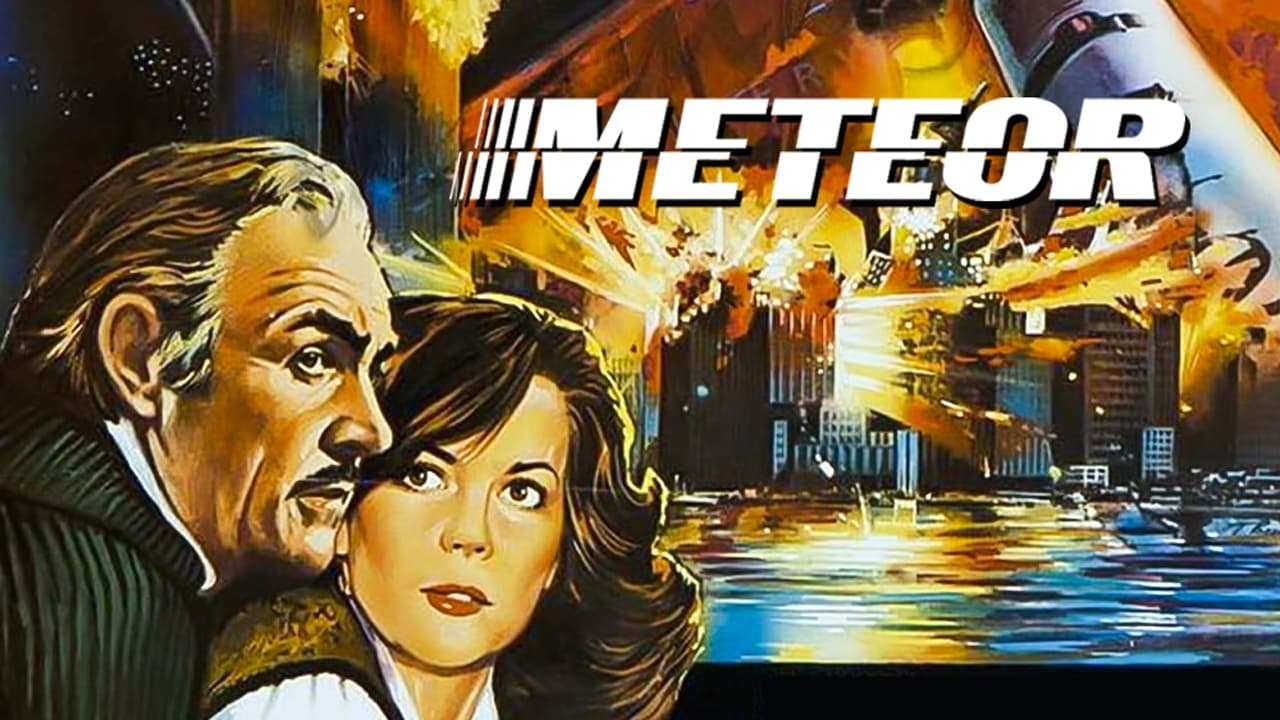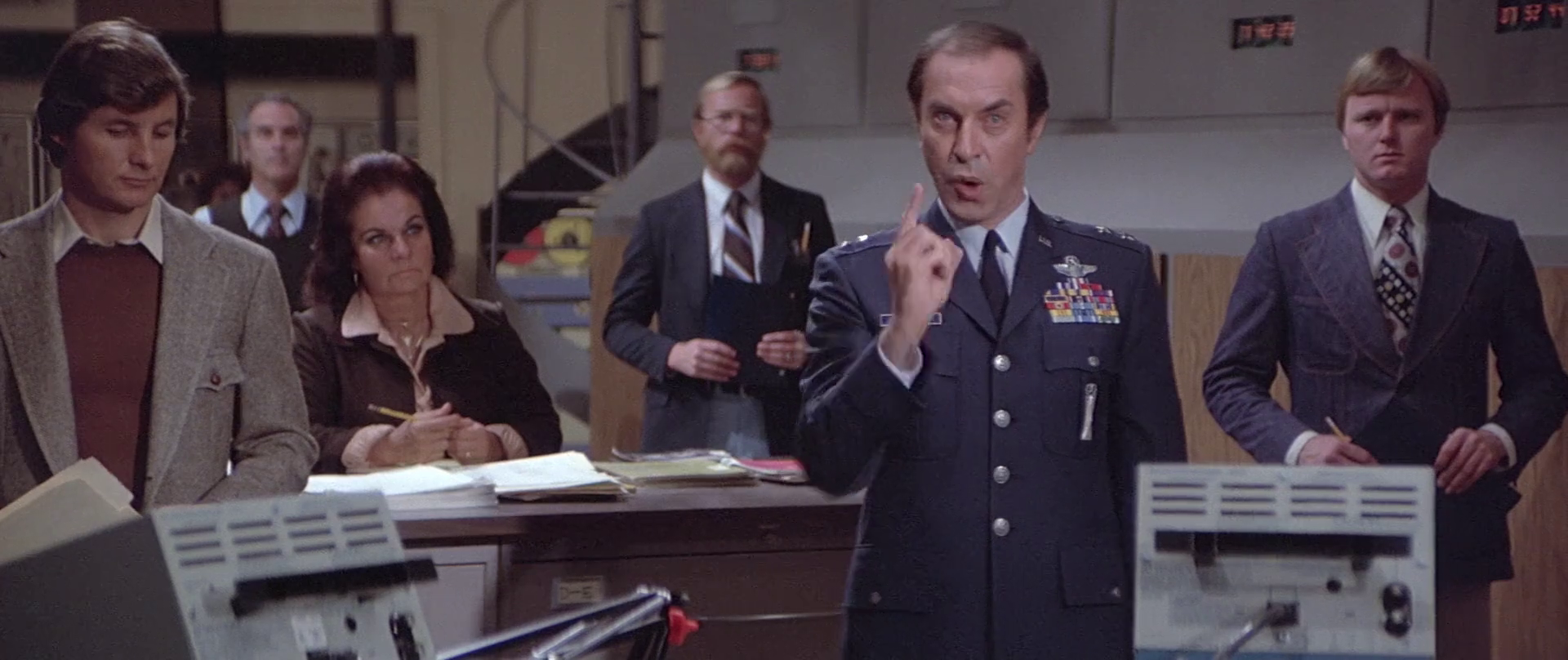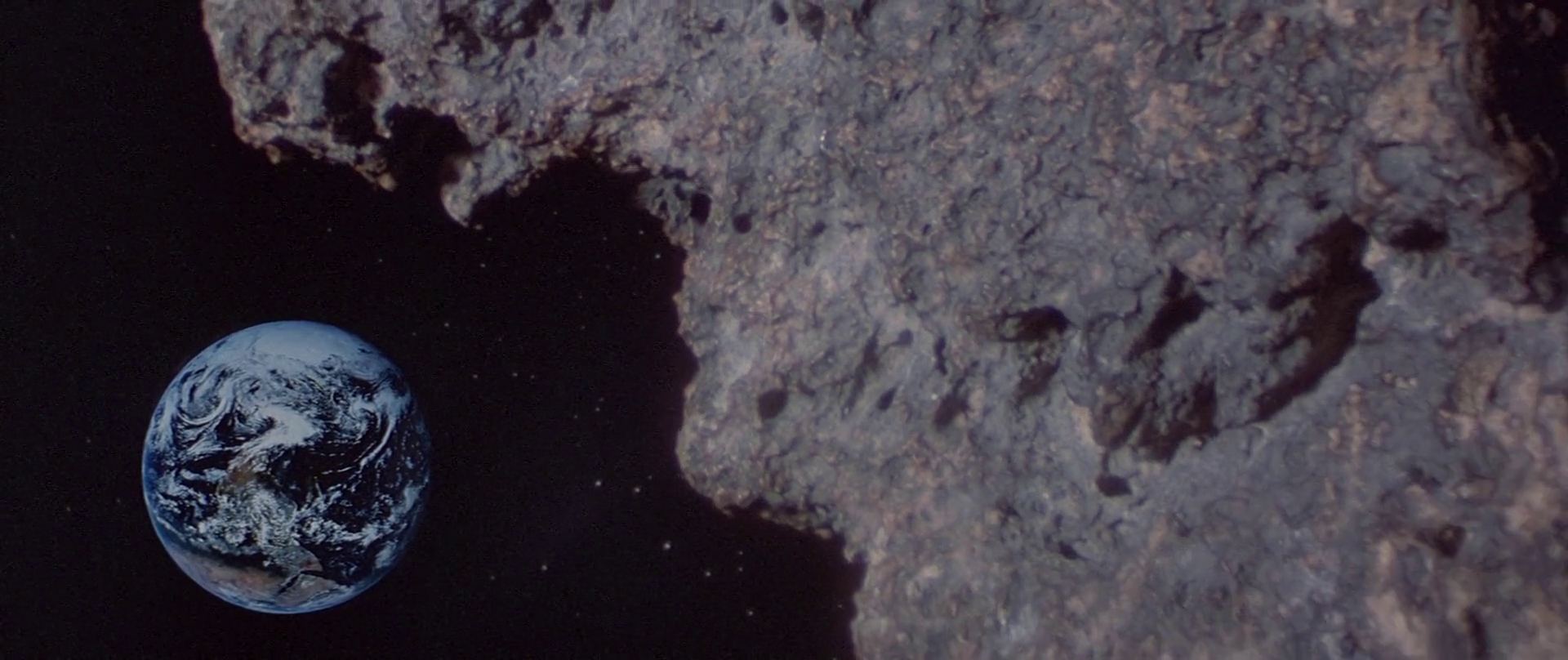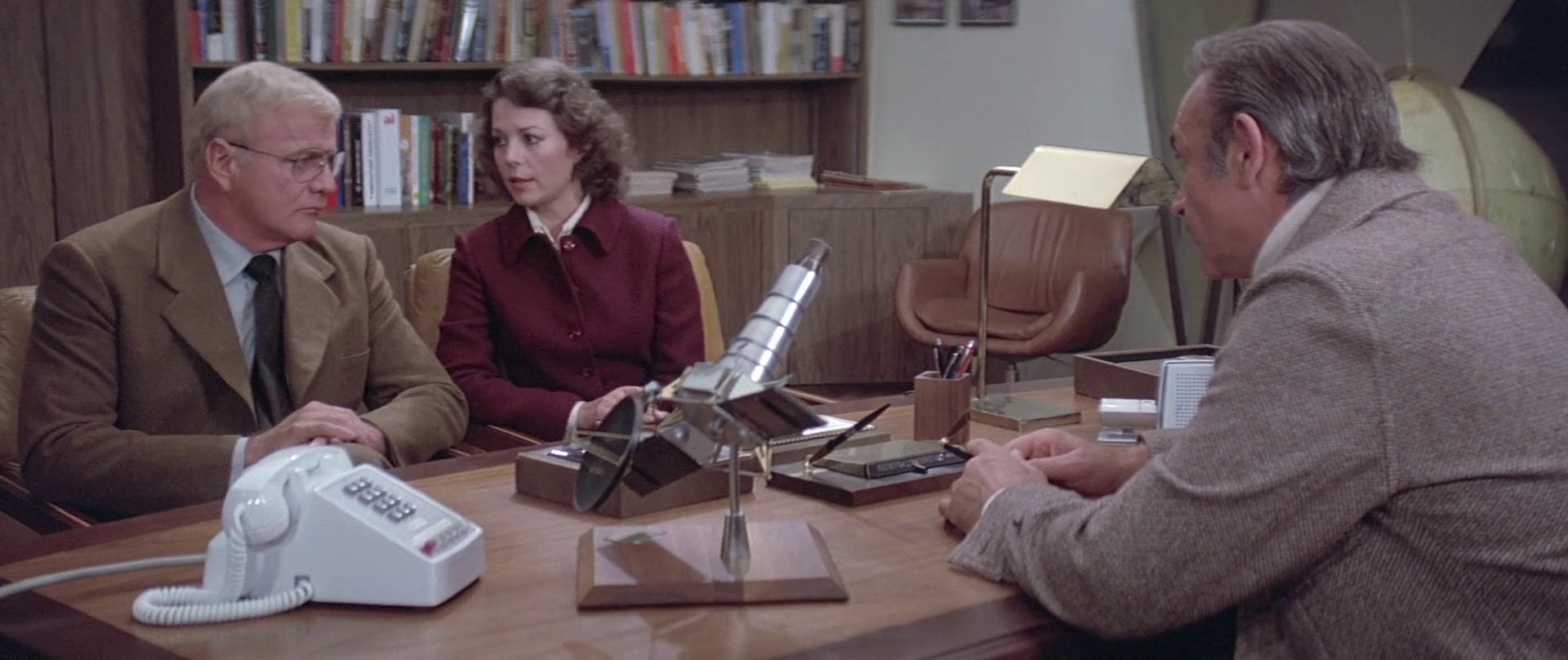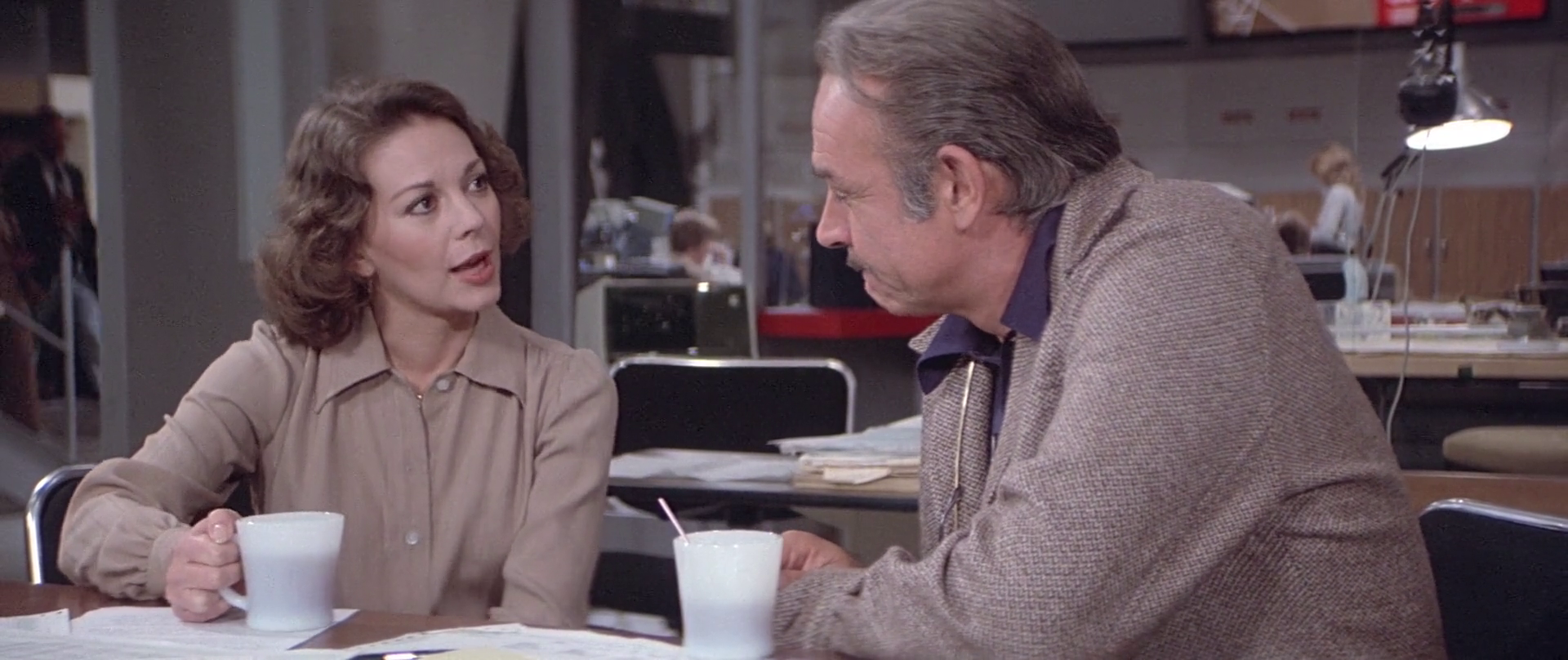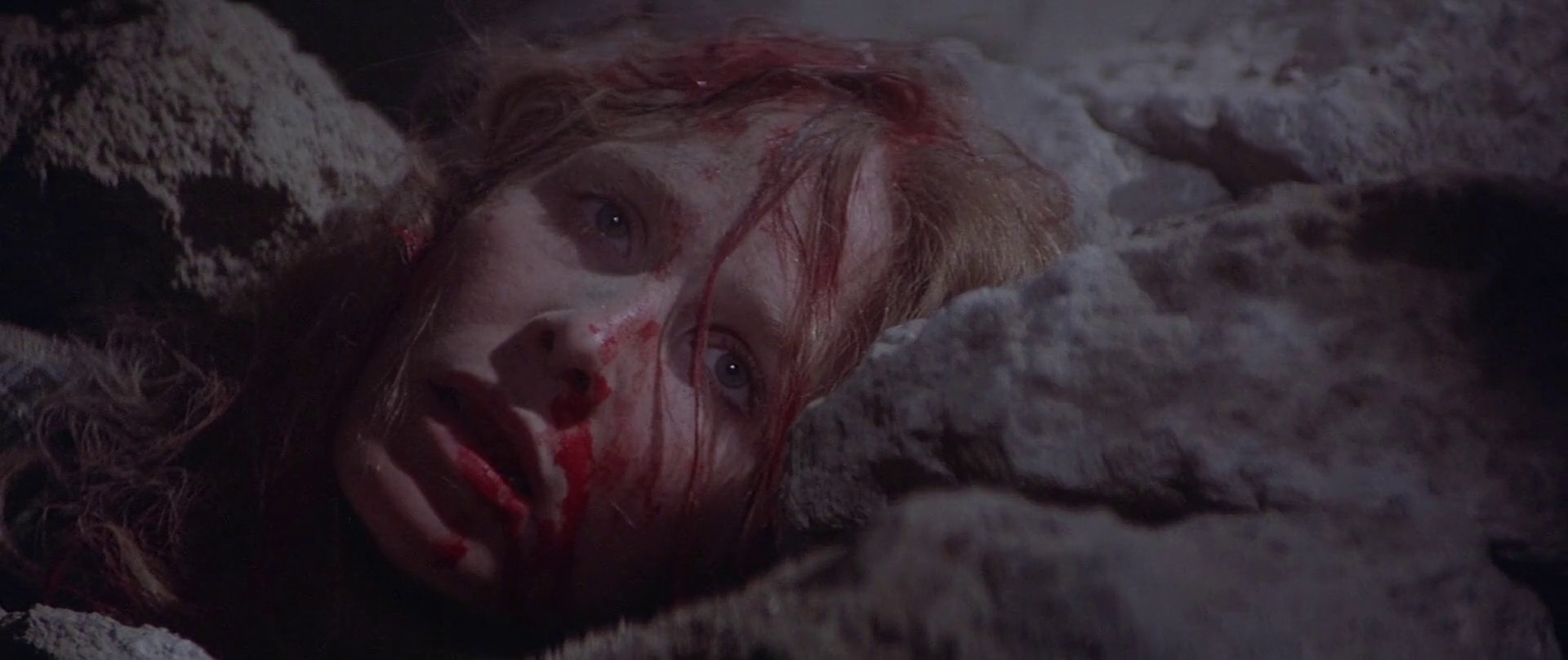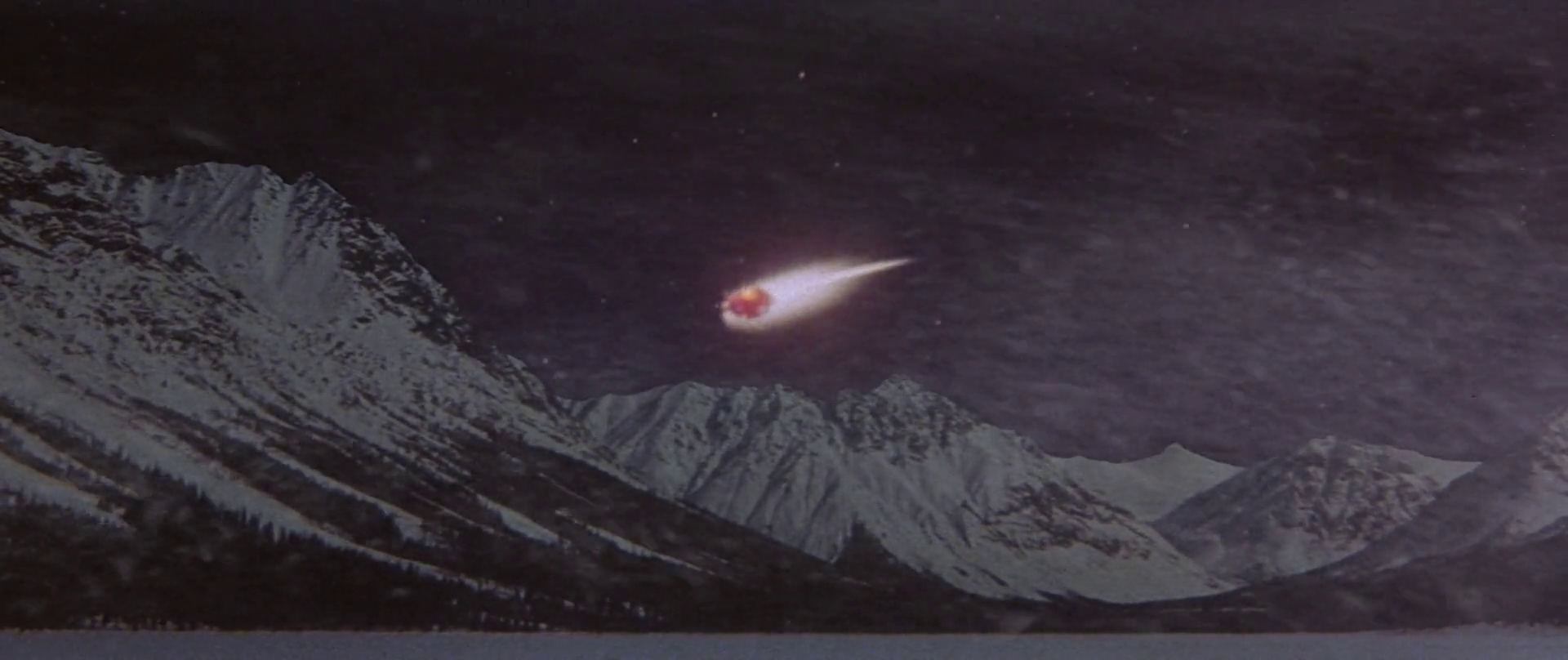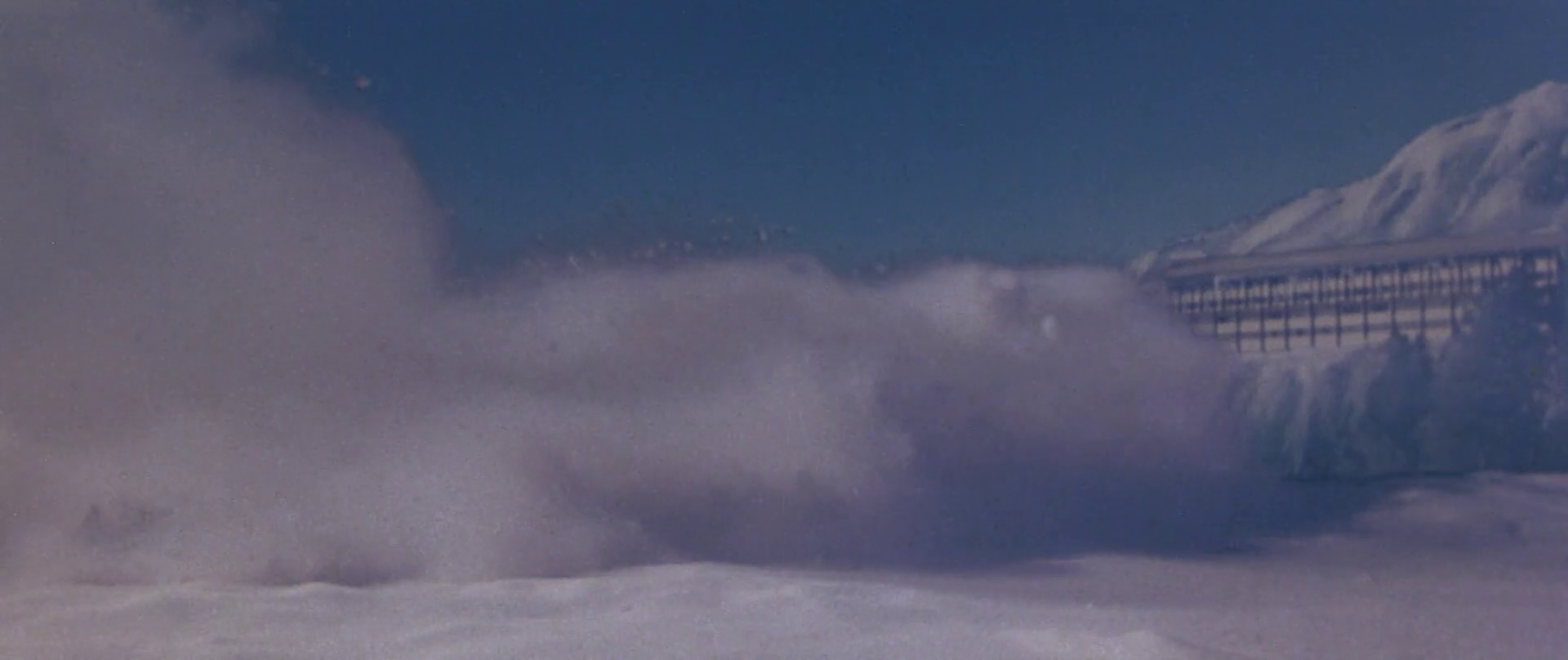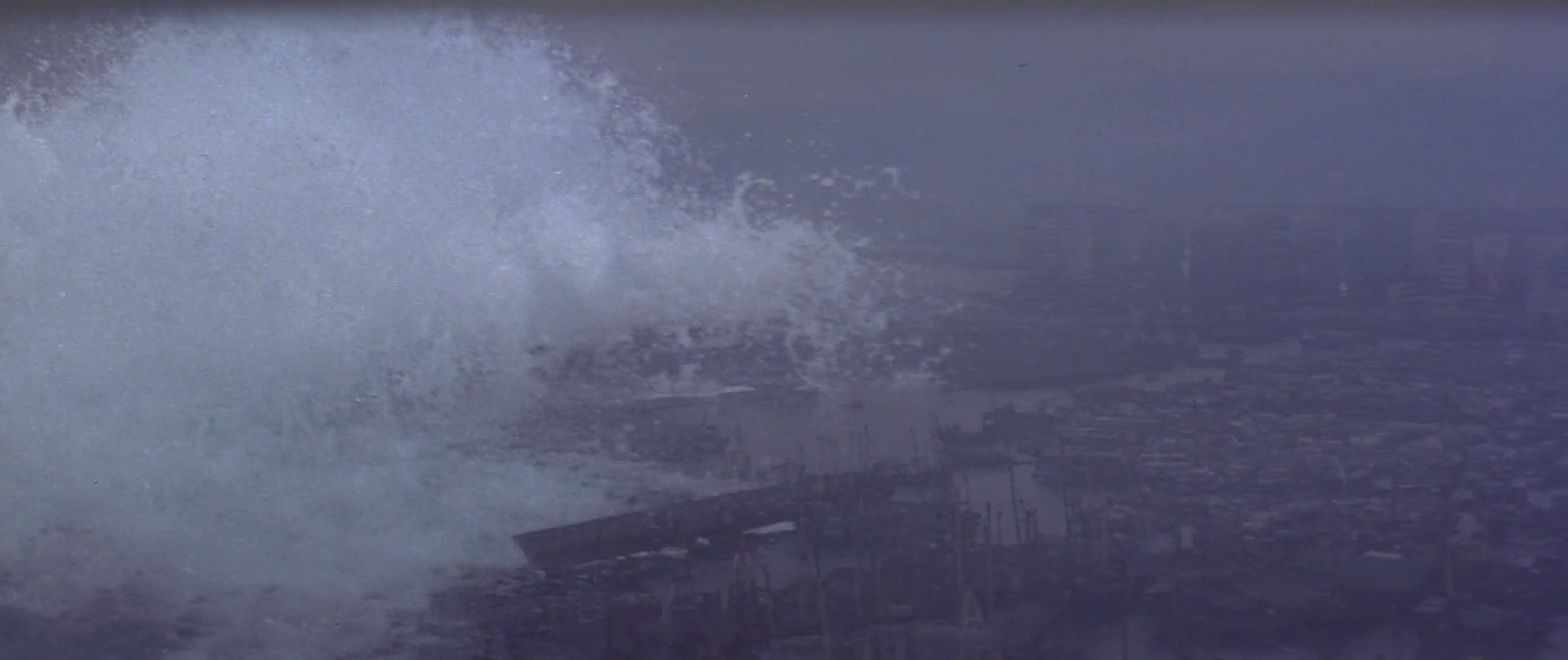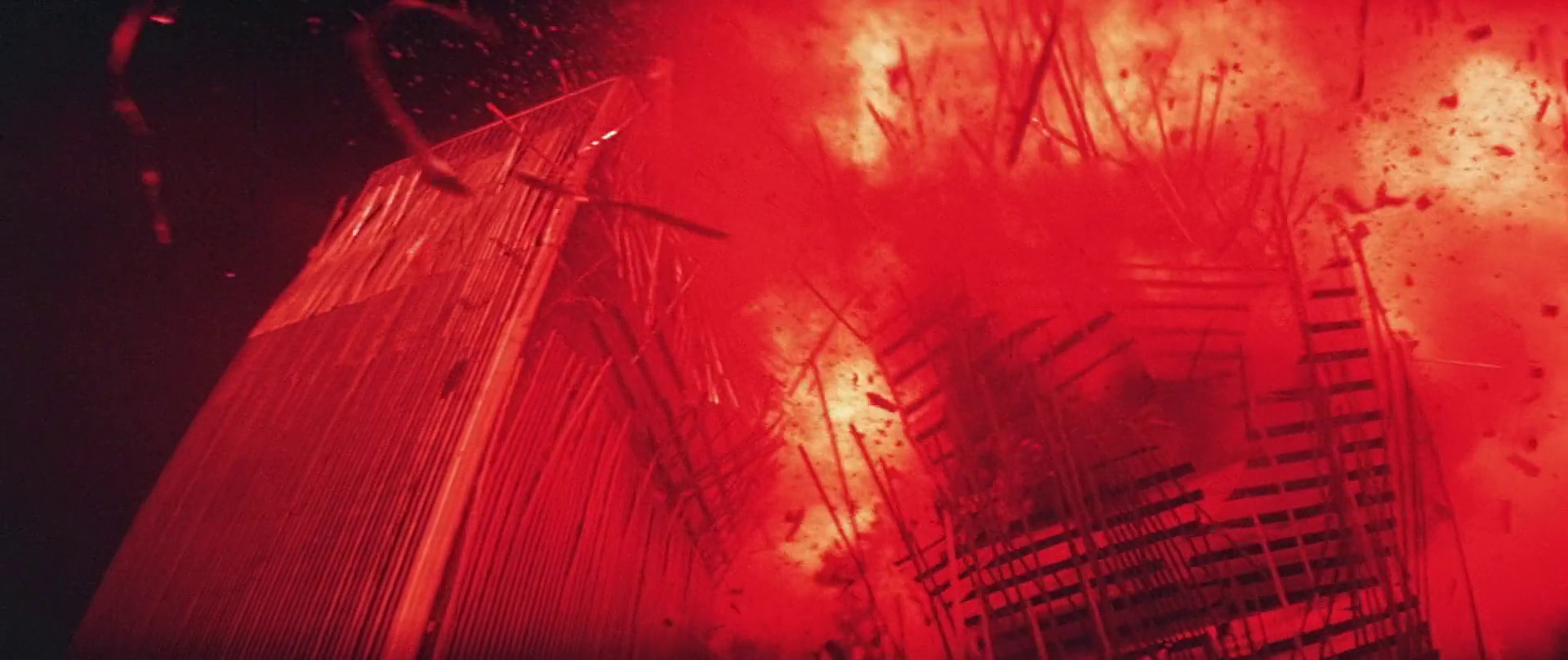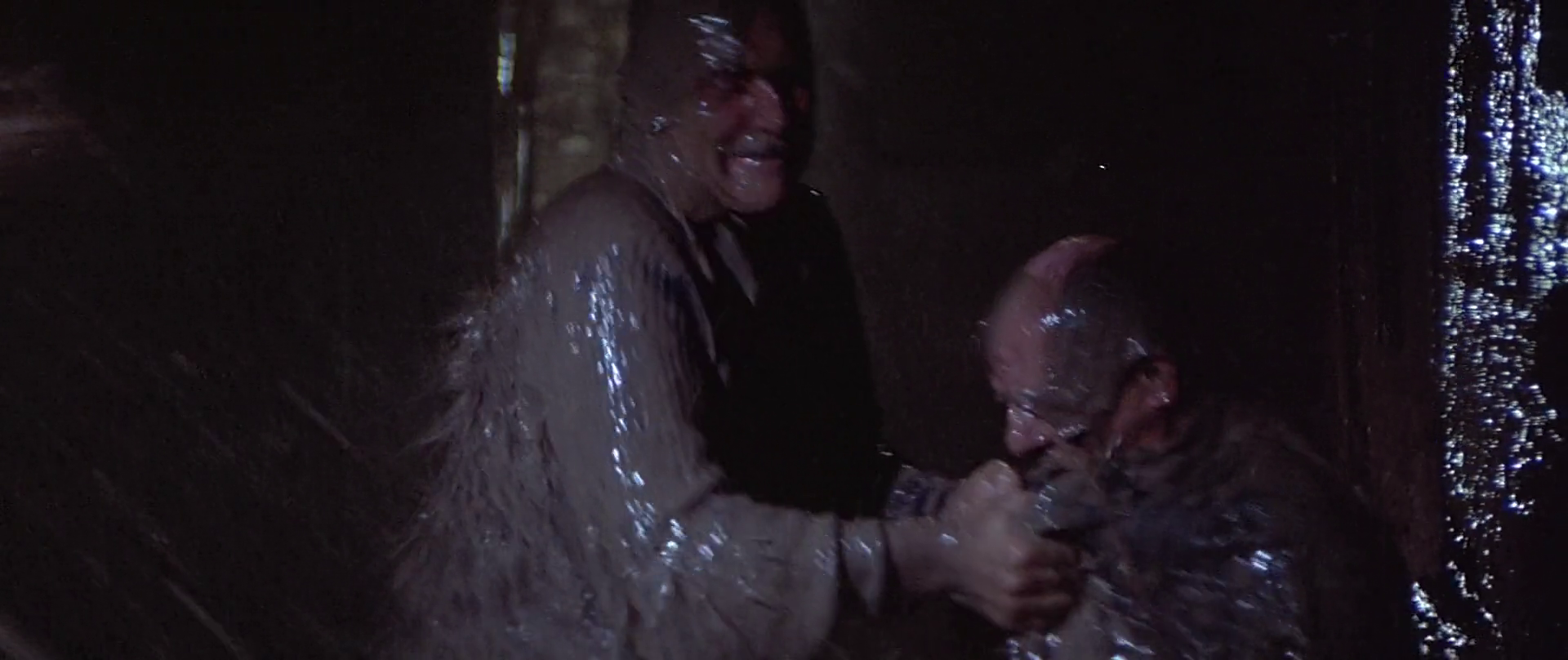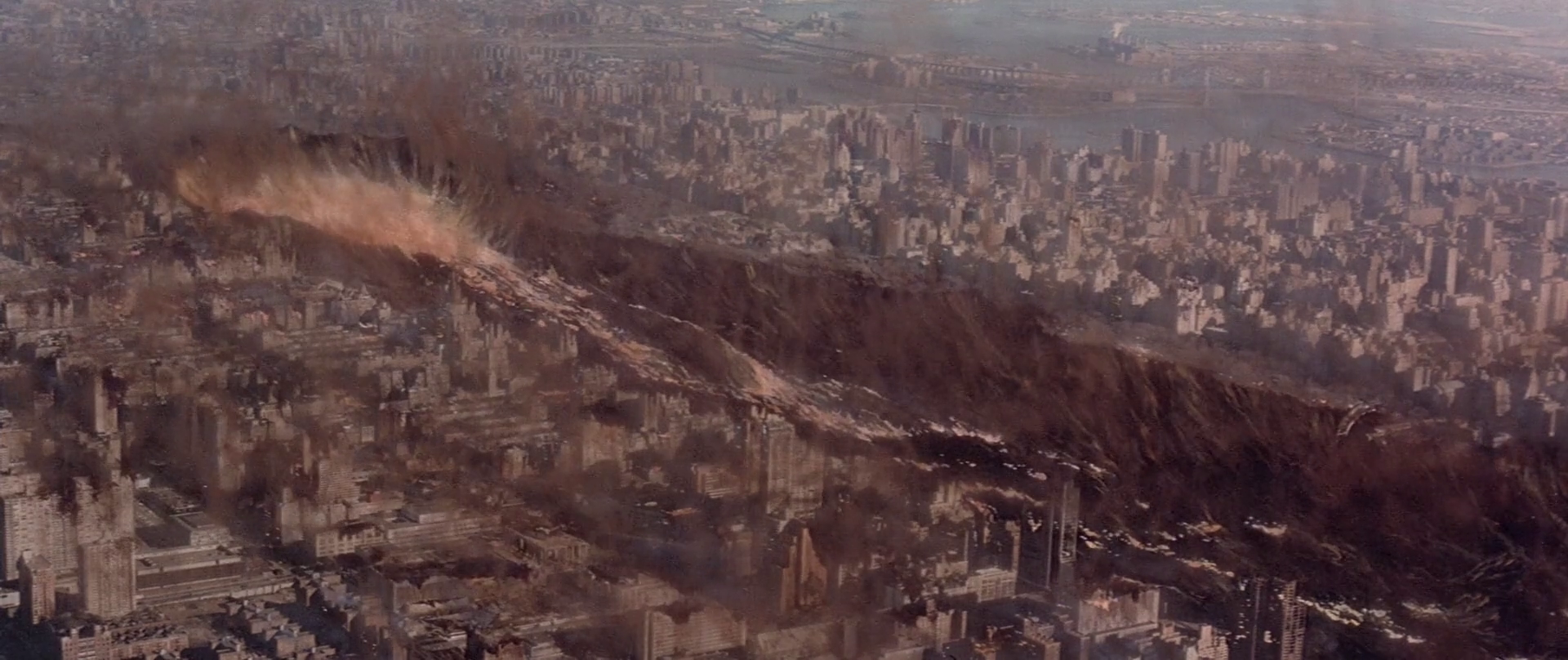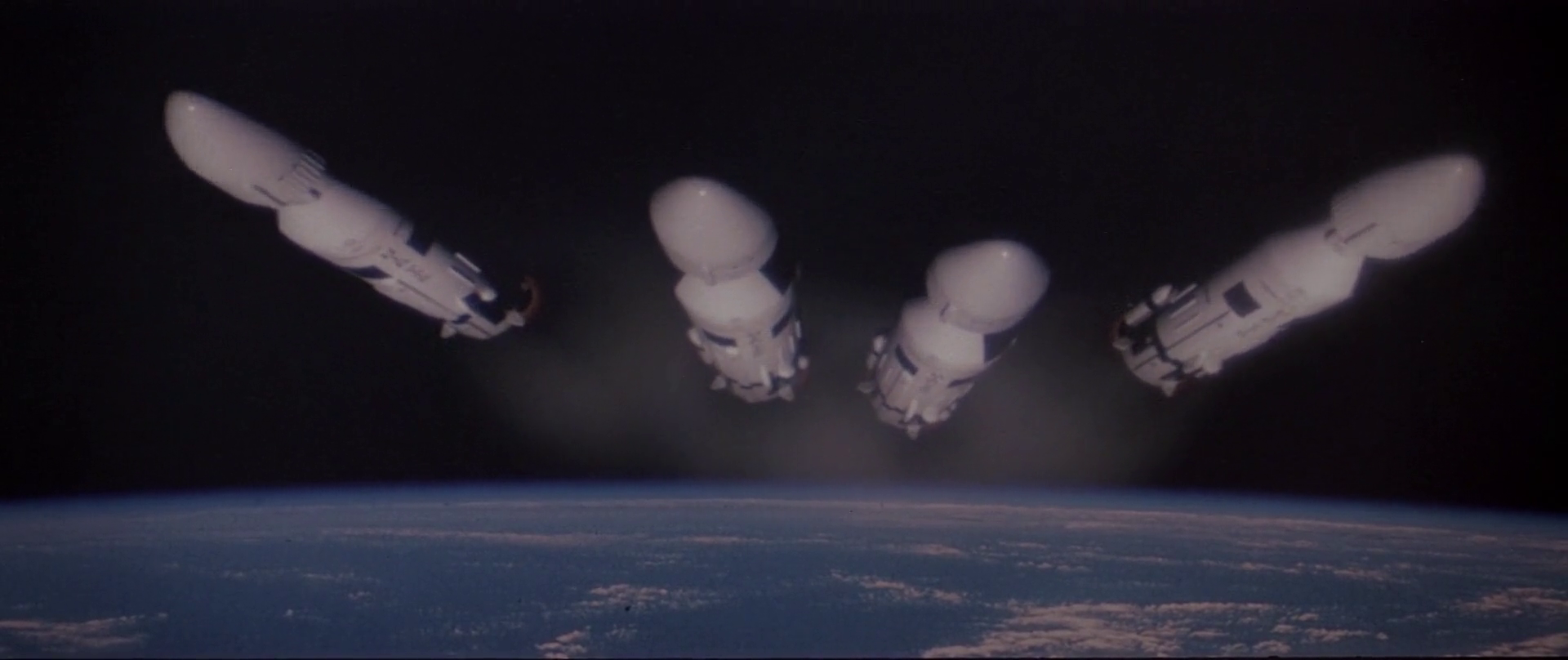Meteor is a disaster film from 1979 that is pure, unadulterated '70s cheese, directed by Ronald Neame, the movie tells the story of a massive asteroid on a collision course with Earth and the desperate efforts of an international team of scientists and military personnel to stop it. The plot centers on Dr. Paul Bradley (Sean Connery), formerly of NASA, who is yanked out of retirement by the government because a colossal asteroid is heading to Earth and only his space-based missile platform, code-named Hercules, has a chance of stopping it.
No, not that Hercules.
The problem is that Bradley quit NASA when the U.S. Government decided that his weapons platform would be better suited pointed down at Russia instead of its designed purpose of protecting the Earth from incoming threats of outer space debris. Bradley begrudgingly agrees to help realign the missile platform despite the ravings of General Adlon (Martin Landau), who doesn’t want anyone to use the missiles as that would be tantamount to admitting to the world that the United States broke all treaties about arming space, and he is doubly concerned about letting the Russians into his top-secret undergroud missile command bunker.
"Sir, you can't let him in here. He'll see everything. He'll see the big board!"
Harry Sherwood (Karl Malden) of NASA is able to talk The President (Henry Fonda) into putting Bradley in charge and making Adlon step aside, which Adlon takes with the grace of a prepubescent bully. At one point the General who storms out of the Command Center vowing only to return if he is put back in charge, basically, runs off holding his breath like a two-year-old who didn't get his way. It's these opening scenes that make it clear that this film revels in its own absurdity and seeing Martin Landau chew the scenery like this is a joy to behold. The asteroid, dubbed "Orpheus" is introduced with ominous music and close-ups of its fiery surface, but the effect is more comical than frightening and these repeated "dramatic" shots of it tumbling through space are not as suspenseful as I'm sure the filmmakers had intended. The movie is interrupted often with these endless shots of Orpheus that I assume are to remind us that there is an actual threat, well, at least something more threatening than Sean Connery's overt sexism.
Connery had to fight tooth and nail to get billing over this rock.
Of course, crazy military nutbars are not the only problem facing our heroes as it seems that Orpheus is too big for even America’s awesome Hercules missile platform to take care of all by itself, so they have to go to the Russians and get them to admit they have their own nuclear missile platform in space – you just can't trust those Ruskies – and then combine its explosive power with that of Hercules to nudge the five-mile wide asteroid into an orbit that would no longer threaten Earth. The Russians hold off admitting to owning any such device but they do send over their head astrophysicist Dr. Dubov (Brian Keith), and his interpreter Tatiana Donskaya (Natalie Wood), to consult “theoretically” on what can be done.
"Doctor, should we trust this obvious British spy?
This is where the uncomfortable sexism rears its ugly head as General Adlon has insisted on having his own interpreter present to ensure that Tatiana is properly translating what he says, as this is standard procedure, but this apparently makes him an asshole so Bradley steps in saying that’s redundant and that they only need one interpreter and we should, "Keep the pretty one."
Sean Connery, a friend to women everywhere.
At one point Tatiana chats with Jan Watkins (Katherine De Hetre), one of the Hercules staffers, and their conversation is about getting nice bed linens, good soap and how awfully nice Jan’s scarf is, but not about their jobs or the current crisis, as one would hope to hear from two professionals, but Heaven forbid they appear good at their jobs. Later Tatiana finds the scarf she admired cleaned and pressed in her room as a gift from Jan. *sigh* If this was supposed to be some kind of character-building moment the writers should be taken out and slapped soundly, not that any of that matters because Jan is the one they chose to kill off at the end of the movie to make the audience realize the horror of it all.
Maybe if she had kept that scarf she would have survived.
An issue that every movie that deals with an asteroid must face, especially one that is threatening the Earth with obliteration, is that the script has to overcome the fact that if the heroes succeed the audience wouldn't get to see all that awesome wholesale destruction that they all paid their $5 bucks to see, so what's the answer to that cinematic dilemma? The solution to this problem is in precursor attacks, and in this case of this that comes in the form of “splinters” from Orpheus that will hit the Earth at random moments throughout the movie’s running time, all to keep the audience from nodding off or simply getting up and leaving. And what kind of "disaster porn" do the filmmakers offer up to keep bums in their seats?
We get an impact in the wilds of Siberia.
An avalanche wipes out a Swiss Alps holiday resort.
A tsunami devastates Hong Kong.
What these events pretty much always fail to do in these types of movies is garner any type of emotional response because none of those scenes contain any characters we have come to know or care about, which is not to say we really care about anybody in this movie, but we do get to sit back and “Oooh” and “Ahhh” at all the hard work the special effects teams and stuntmen went towards making these moments look cool. If well done it can still be entertaining but in this film, not so much, any disaster shot that involved an optical effect looked simply terrible, with only the odd practical effects shot and nice piece of stunt work to make things look respectable. Meanwhile, our team has aligned both Hercules and the Russian missile platform Peter the Great, which the Russians finally admitted to having, and they prepare to launch them at Orpheus, but just as things are going well another splinter is spotted and this one is going to hit the Eastern Seaboard of the United States. The shit just got real.
Post 9/11 filmmakers lost a favourite target for disasters.
Lucky for us, the team at Project Hercules was able to launch the missiles seconds before the splinter hit Manhattan but I call bullshit on the idea that a button simply had to be pressed by some dude, as the whole thing had to be coordinated with the Russians space platform to within a fraction of a second, so there is no way any human being would be simply pressing any stupid trigger anywhere as it would all be computer-controlled. It is at this point that the film becomes your tried and true disaster film as the Command Center is severely damaged by one of the splinters hitting the city above and our cast of characters must scramble heroically to make their way to the surface. Bradley takes the lead as the survivors must trudge through damaged subway tunnels while water and mud from the Hudson River start to pour in.
Trivia Break: A million pounds of mud was used for this sequence and the eight to fourteen-day shoot could not have been pleasant for anybody. Sean Connery was off for two days due to a respiratory condition caused by the mud, while poor Natalie Wood was almost sucked into one of the pumps and Karl Malden was buried in the mud twice! At least this was all for a good cause...oh right, never mind.
Eventually, the missiles from Hercules and Peter the Great both reach their target and blow Orpheus to smithereens, wait…what? It was clearly stated earlier in the film that the plan was to shift the orbit of the asteroid not destroy it completely, we were led to believe that even the combined nuclear might of the Americans and Russian missiles wouldn’t have a chance of actually blowing the thing up, yet it seems that the screenwriters forgot this little nugget of information as we clearly see Orpheus being blown into space dust.
In the largest fireball, you will ever see in the vacuum of space.
Despite its promising premise, Meteor fails to deliver a truly gripping disaster narrative. The pacing is slow and uneven, with long stretches of exposition and character development that feel drawn out and unnecessary. Even when the action does kick in, it often feels uninspired and underwhelming. The all-star cast delivers performances that are so over-the-top and melodramatic that the movie almost slides into parody – the cast's ability to knock out lines from this script without laughing on camera is more impressive than the on-screen destruction – and despite this illustrious cast giving their all, Meteor failed to catch fire with audiences and critics alike and with its $22 million dollar production budget, it only managed to take in a little over 8 million domestically at the box office, and thus came the end to the 70s era of disaster films, a genre that went out not with a bang but with a whimper.
This film did have a pretty good matte painting of a destroyed New York City.
Stray Observations:
- The opening credits streak through outer space because someone in the production clearly saw Superman: The Movie and thought that would be a great bit to steal.
- The asteroid belt is shown as being crowded with asteroids, in fact, asteroids in the belt are so far apart that one could fly right through the area without even seeing an asteroid.
- A big thing is made about how only Hercules and Peter the Great can be used as they are the only orbital missiles around but is there some reason land-based nukes can’t be used?
- This film borrows footage from the Roger Corman-produced disaster movie Avalanche, and it should be noted that if you are borrowing effects shots from Corman you are in big trouble.
- We see the rockets with the engines glowing for their entire trip to Orpheus, but rockets are very fuel-thirsty and would only need to burn to achieve escape velocity and then would coast the rest of the way to the meteor.
- A few of the missiles run out of fuel and drift away, which is ridiculous, as mentioned in the previous point they would continue on their path until hitting something. Did none of the writers on this movie even open a science book?
If phallic shapes flying through space are your thing, have we got a movie for you.
Note: Later films like Michael Bay's Armageddon and Deep Impact would make serious bank with the killer asteroid sub-genre but even those entries have very dubious science moments and with characters of even less dimension than found in this film, and Meteor should get credit for being the first so that's something...right?
